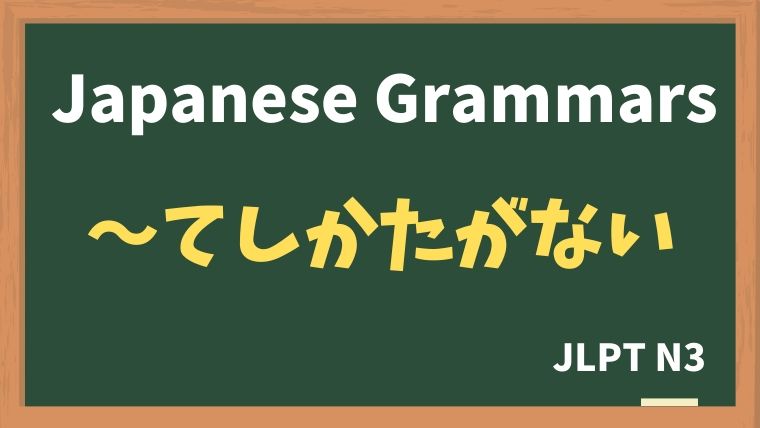
Explanation:〜てしかたがない / てしょうがない
fa-check-circleMeaning
"とても〜だ / 我慢できないくらい〜だ"
"cannot help / cannot stop feeling"
Used to indicate a strong, almost overwhelming feeling or emotion. They convey a sense that the speaker cannot help but feel a certain way, often to the point of being unable to ignore or control the feeling.
fa-check-circleForm
V(te form) + しかたがない / しょうがない
イAくて + しかたがない / しょうがない
ナAで + しかたがない / しょうがない
fa-check-circlePoints
- Expressing Strong Emotions or Feelings: These expressions emphasize that a feeling or emotion is so strong that it is difficult to endure or ignore.
- Commonly Used for Personal Emotions: These phrases are often used to describe emotions like happiness, sadness, frustration, or desire that are intense and personal.
- Interchangeable: Both "〜てしかたがない" and "〜てしょうがない" are generally interchangeable, with only slight regional or personal preference differences.
fa-check-circleJLPT Level
N3
Sample sentenes
昨日は外がうるさくて、寝られなかったから、今は眠くてしかたがない。
Yesterday it was noisy outside, so I couldn't sleep, and now I'm extremely sleepy.
JLPT N3に受かったので、嬉しくてしかたがない。
I'm extremely happy because I passed the JLPT N3.
背中がかゆくてしかたがない。
My back is so itchy I can't stand it.
将来、私の国の経済がどうなるのか不安でしかたがない。
I'm extremely worried about what will happen to my country's economy in the future.
日本語の勉強が嫌でしかたがない。
I really hate studying Japanese.
1点足りずに試験に落ちたので、悔しくてしかたがない。
I'm extremely frustrated because I failed the exam by just one point.
Vocabulary
| Japanese |
English | |
| 痒い | かゆい | itchy |
| 不安 | ふあん | anxious / uneasy |
| 悔しい | くやしい | to be frustrated |






